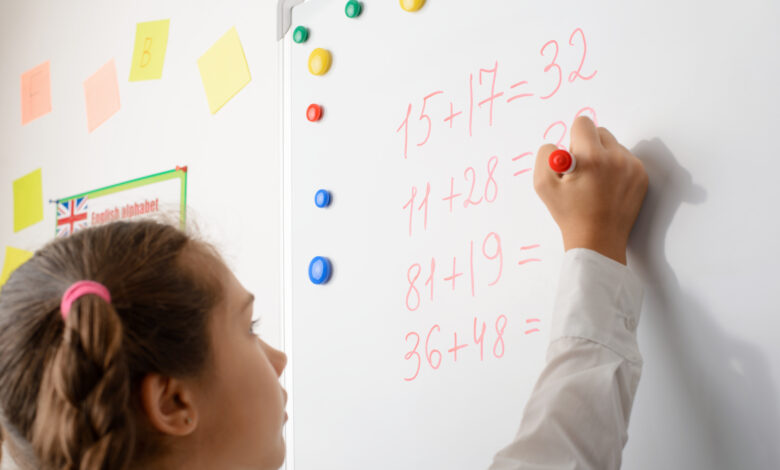Build your maths programme around student confidence
Imagine a New Zealand primary school where students choose to do maths first thing in the morning, before the bell rings…

Not just a few students, but more than 20 in a single classroom…
The children know they could read a book, or kick a ball outside, but instead choose to do maths.
In fact, no imagination is necessary, because this is the exciting new reality at a Kāpiti Coast school I worked with recently.
Read our full print magazine issue for Term 2 here.
Following years of ineffective professional learning and development (PLD) and diminishing returns, this school set a new direction for its maths programme this year. Thanks to a few key interventions, students are now fully engaged and feeling the love for maths.
The children may not even realise the extra practice they do will increase their fluency with numbers and free up their working memory, helping to improve their understanding and handle more complex tasks. For now, the children simply enjoy experiencing success and are growing in confidence.
Striving for understanding does not equal high maths performance
[pro_ad_display_adzone id=”4703″ align=”left”] Many schools have learned the hard way that New Zealand’s 20-year quest to raise student maths performance by developing a deep understanding of numbers has, ironically, not developed much understanding at all. Instead of creating flexible problem solvers, the premature exposure to a plethora of mental number strategies has left children confused rather than enlightened.It’s no wonder national confidence in maths is at an all-time low; it breaks my heart because I know it simply doesn’t have to be this way.
I am a life-long learner of maths. My understanding of teaching and learning maths is shaped by my own positive learning experiences and almost 20 years re-creating those positive experiences to improve learning outcomes for many primary and secondary students. Reassuringly, there is plenty of evidence to support my approach.
Meaningful practice and repetition does not equal rote learning
Research published in a recent report by the Ministry of Education found that confidence in maths is positively associated with achievement, more so than liking or valuing maths, and particularly for older learners.
In my experience, successful practice builds confidence. It is a highly effective learning strategy because, when students feel confident, they are emotionally and cognitively ready to improve their understanding and make their learning meaningful.
The benefits of practice might be downplayed for fear of students rote learning without understanding, but it is the teacher’s job to ensure that doesn’t happen. Repetition is actually important for mathematical cognition. Without repetition, students cannot spot patterns. Without patterns, students cannot develop algebraic thinking.
Focus on explicit teaching before inquiry
Inquiry-based approaches sound wonderful; who doesn’t find the idea of children learning through their natural curiosity, discovering things for themselves, appealing?
Sadly, the reality is that the annual average progress in maths achievement in the upper primary and lower secondary years is not sufficient to meet curriculum expectations. Schools need to move faster and smarter.
More worryingly, inquiry-based approaches are unwittingly widening the achievement gap. Problem solving and rich tasks are only rewarding when students already have the necessary knowledge and skills for effective inquiry. Students with access to more resources clearly have the advantage in this type of learning environment, but teachers can level the playing field by explicitly teaching all students the prerequisite knowledge and skills before they try to solve novel or challenging problems.
The notion that whole-class explicit teaching is not student-centred enough for today’s modern learning must be challenged.
Explicit teaching is about giving students the benefit of our knowledge and experience to make their learning more successful and enjoyable. Whole-class teaching is about creating a synergy in the classroom, where students know they are fully supported by their teacher and progressing with their peers. Again, the evidence is on my side. Explicit teaching, scaffolding, deliberate practice, classroom discussion and self-efficacy are all highly effective influences on student achievement.
The school at the start of this article exemplifies my vision of a brighter future for maths education in New Zealand. It is not the first to experience such a positive transformation in their students and it certainly won’t be the last. After examining the evidence, the road ahead for schools should be clear.






